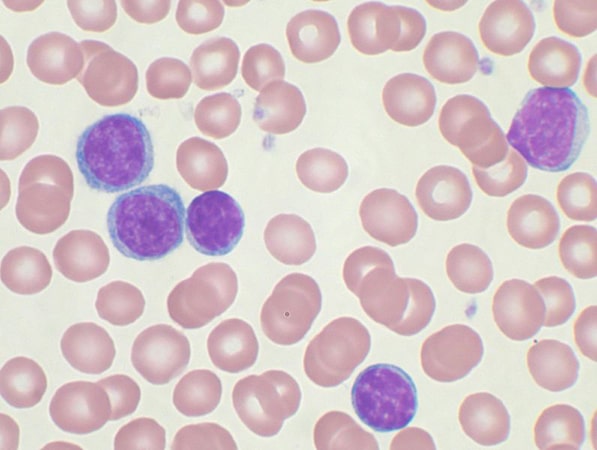A New Targeted Therapy for Certain Blood Cancers
The FDA approved zanubrutinib, a second-generation Bruton’s tyrosine kinase inhibitor.
The U.S. Food and Drug Administration (FDA) has approved zanubrutinib (Brukinsa) for the treatment of chronic lymphocytic leukemia (CLL) or small lymphocytic lymphoma (SLL).
Zanubrutinib is a type of molecularly targeted therapy that inhibits the activity of a protein called Bruton’s tyrosine kinase (BTK), which promotes the survival and proliferation of malignant cells. Zanubrutinib is a second-generation BTK inhibitor that was developed to have improved safety and efficacy.

The approval was based on results from two clinical trials. Efficacy in previously untreated patients with CLL/SLL was evaluated in the open-label, randomized, phase III SEQUOIA trial, in which 479 patients received either zanubrutinib until disease progression or unacceptable toxicity or a combination of the anticancer drugs bendamustine and rituximab for six cycles. The median progression-free survival was not reached in the zanubrutinib arm and was 33.7 months in the bendamustine plus rituximab arm. In an additional non-randomized cohort of SEQUOIA, investigators evaluated zanubrutinib in 110 patients with previously untreated CLL/SLL carrying a 17p deletion, a molecular alteration associated with poor prognosis. The overall response rate in this population was 88 percent, and the median duration of response was not reached after a median follow-up of 25.1 months.
In the randomized phase III ALPINE trial, zanubrutinib was compared to ibrutinib (Imbruvica), a first-generation BTK inhibitor approved for the treatment of CLL, in 652 patients with CLL/SLL whose disease did not respond to or came back after previous treatments. The overall response rate was 80 percent in patients who received zanubrutinib and 73 percent in those who received ibrutinib. After a median follow-up of 14.1 months, the median duration of response was not reached in either arm.
CLL is a slowly progressing cancer of the blood and bone marrow. It is referred to as SLL when cancer cells are found mostly in the lymph nodes. According to federal statistics, it was estimated that more than 20,000 people would be diagnosed with CLL, and more than 4,400 people would die of the disease in the U.S. in 2022.
The FDA rendered its decision on January 19, 2023.
